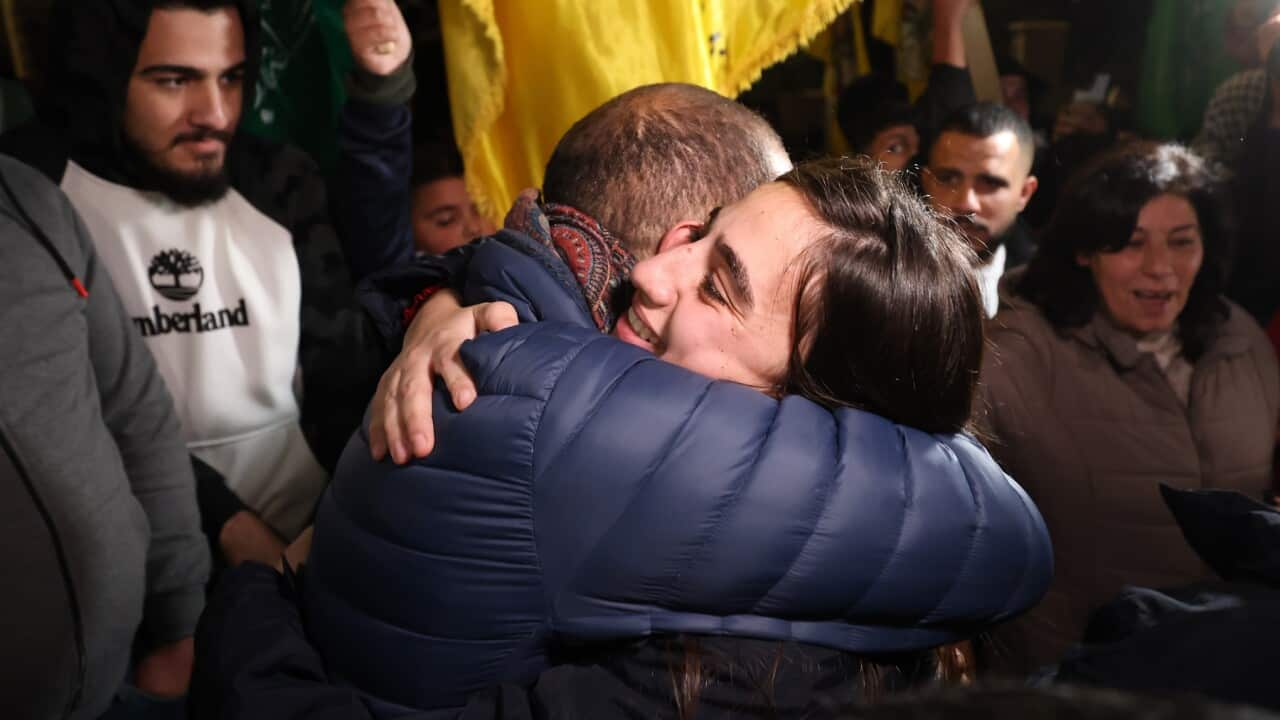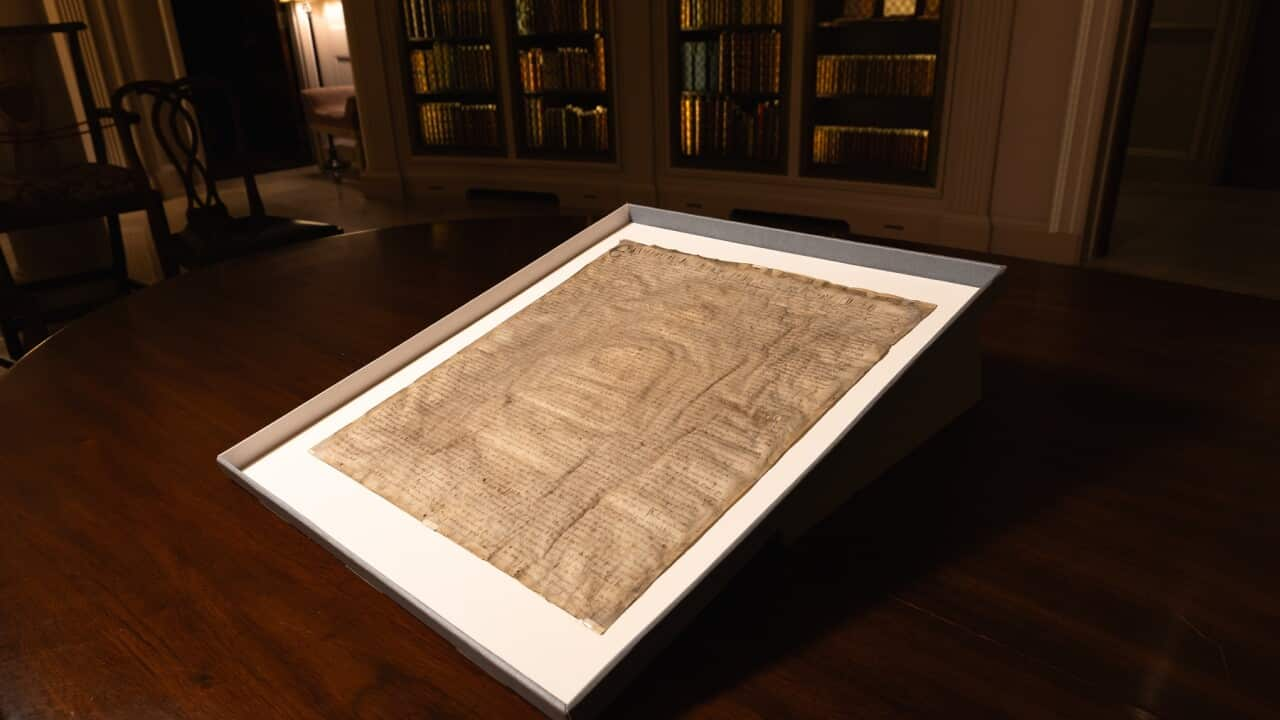TRANSCRIPT
The extended humanitarian truce between Israel and Hamas in Gaza has entered its sixth and final day ((November 29)), after a fifth exchange of hostages held by Hamas in Gaza for Palestinians detained in Israeli prisons in the West Bank.
Israel has confirmed 12 hostages, including ten Israeli citizens and two foreign nationals, are back in Israel after being released by Hamas, while mediator Qatar [[Cutter]] confirmed 15 children and 15 women had been released from the Ofer prison in the West Bank.
The fifth exchange - again made up of women and children - follows the pattern of previous days under the truce, bringing the number of Israelis returned to 60, along with 21 hostages of other nationalities, with the number of Palestinians released at 180.
With a final exchange expected under the current agreement, Israelis and Palestinians have both expressed concern that not enough is being done to resolve the conflict.
In Tel Aviv, family members of the around 160 hostages still held by Hamas gathered to call upon Israeli Prime Minister Benjamin Netanyahu to do more to bring all captives back as soon as possible.
27-year-old Gali Lev says she wants to see adults released as well.
“Their parents are still kidnapped, there are young people, there are young soldiers, people who are innocent who were in this party and now they’re kidnapped and we don’t know if they’re dead or alive. We have to have them home as soon as possible.”
Gaza resident, Abdal Aleem Muhsen, among the estimated 1.7 million people internally displaced out of a population of 2.3 million, says a temporary truce has succeeded in stopping airstrikes, but homeless families are still in desperate circumstances.
“The war has destroyed us. We demand not an extension, but rather a solution to the war. Why should we be fuel for the war and a victim? What is our fault? What condemned us to leave our homes and our money and sacrifice ourselves? For how long?”
After the pause in fighting, Hamas' Health Ministry statistics remained largely unchanged from the previous day, with almost 15,000 people, around two-thirds of them women and children, killed in Gaza since Hamas' October the 7th attacks on Southern Israel, in which Israel says more than 1200 people, mainly civilians, were killed.
Mediator Qatar is seeking to extend the agreement, which has seen much-needed aid enter Gaza through the Rafah crossing with fellow negotiator Egypt.
Spokesman for Qatar's Ministry of Foreign Affairs, Majed al-Ansari says the state is working towards conversations on a permanent ceasefire, and the release of other civilians and eventually military personnel.
“It has been confirmed that twenty hostages will be released between today and tomorrow. There is no doubt that within these forty-eight hours, there will be active action in order to extend this truce. This is, of course, mainly related to Hamas' confirmation of the possibility of releasing more hostages.”
Israel, who earlier said it was willing to extend the cease-fire by one day for every 10 additional hostages that Hamas releases, has reiterated its intention to begin a ground and air offensive in Southern Gaza, should the agreement falter.
Israeli Military Chief of Staff Lieutenant-General Herzi Halevi says the release of hostages is evidence of the success of Israel's military operations in Northern Gaza.
“The IDF is prepared today to continue fighting. We are using the days of the pause as part of the framework to learn, strengthen our readiness and approve future operational plans.”
An uncertain halt to fighting in Gaza has coincided with conflict at the U-N General Assembly's annual meeting on the question of a Palestinian state in New York.
The General Assembly, which voted overwhelmingly last month in favour of a ceasefire, heard from Middle Eastern nations advocating in favour of an immediate, permanent end to the conflict.
Palestinian envoy to the U-N, Riyad Mansour said "human conscience" could not allow a resumption of fighting.
“International law, but also the norms of humanity, demand that we act to stop this war against innocent civilians and save human lives. That we act for humanitarian aid and access throughout the Gaza Strip. That return of those displaced without delay. The end of the siege and blockade. And that we act for accountability. Nothing can ever justify war crimes, crimes against humanity and genocide.”
But Israeli Representative, Reut Shapir Ben Naftaly, criticised the assembly for failing to properly condemn Hamas for its October 7th attacks, including the murders of children and families.
“Yet another one-sided, disproportionate, detached, and biased briefing, fueled by a distorted and destructive political agenda. The deep hypocrisies and systematic bias weaponised against Israel, the United Nations, is based on a false narrative which not only entrenches and perpetuates conflict, but enables and encourages hatred and violence. The extent of Hamas's atrocities has not been addressed or recognized by the United Nations agencies, and especially not by the committee debating here today, let alone was it condemned.”
In Australia, the Albanese government, which was criticised at home after choosing to abstain from last month's General Assembly motion, said that it supported further extensions to the ceasefire.
In a statement Foreign Minister Penny Wong reiterated a call for "steps towards" a sustainable ceasefire and a "long-term, enduring peace".
U-S Officials, treading carefully ahead of another visit by Secretary of State Anthony Blinken to the region this week, have also refused to call to an immediate end to the conflict, urging Israel it must operate with "greater precision" in Gaza if it renews a ground campaign.
Pentagon Press Secretary Brigadier General Pat Ryder, confirming the first of three U.S. military humanitarian aid flights, says consistency with the law of armed conflict continues to be part of discussions with Israel.
“Within the contours of understanding the importance of protecting civilian lives, innocent civilian lives, while at the same time going after the terrorist group Hamas that inflicted pain and suffering not only on the Israeli people but on the Palestinian people. You know, that will continue to be a priority for us.”













